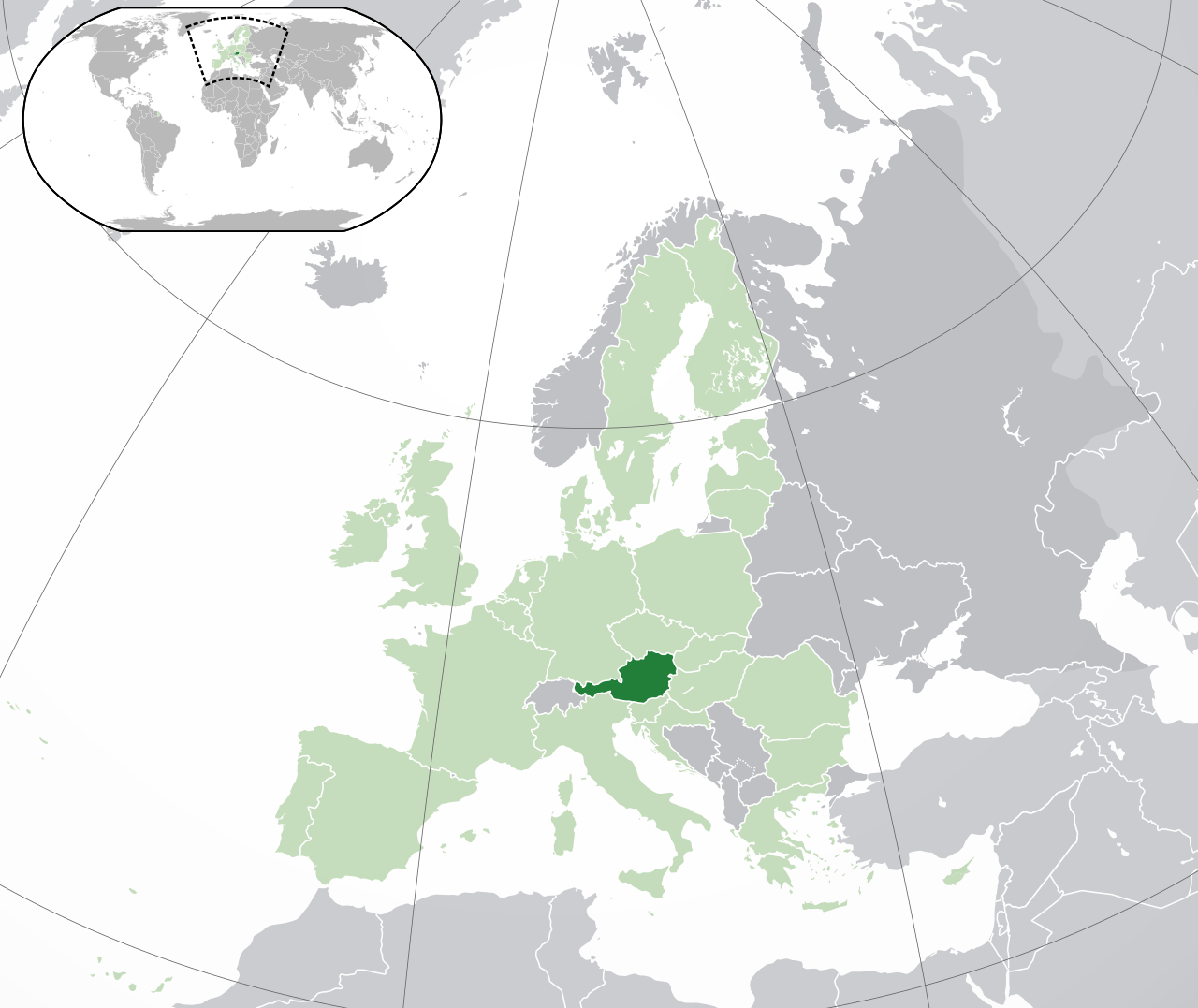
- Population:
- 9,121,000
- Religion:
- Christianity
Located in Central Europe, Austria's history is intertwined with the Habsburg dynasty, which rose to prominence in the late Middle Ages. The Habsburgs expanded their influence, establishing the Austro-Hungarian Empire in 1867. Following defeat in World War I, the empire dissolved, leading to the establishment of the Republic of Austria in 1918. Annexed by Nazi Germany in 1938, Austria regained independence in 1955, declaring permanent neutrality. Today, Austria is a democratic nation known for its cultural heritage and as a member of the European Union.
Austria, officially the Republic of Austria, is a landlocked country in Central Europe. It is bordered by Germany and the Czech Republic to the north, Slovakia and Hungary to the east, Slovenia and Italy to the south, and Switzerland and Liechtenstein to the west. Austria covers an area of 83,879 square kilometers and has a population of approximately 9 million people. The capital and largest city is Vienna. The official language is German. Austria operates as a federal parliamentary republic, consisting of nine federated states. The country has a rich cultural history, particularly in music and the arts, being the birthplace of composers like Mozart and Strauss. Austria's economy is highly developed, with key sectors including machinery, metallurgical products, and tourism. The nation is known for its alpine scenery, attracting tourists for skiing and mountaineering. Austria is a member of the European Union, the United Nations, and the Organization for Economic Co-operation and Development (OECD).






